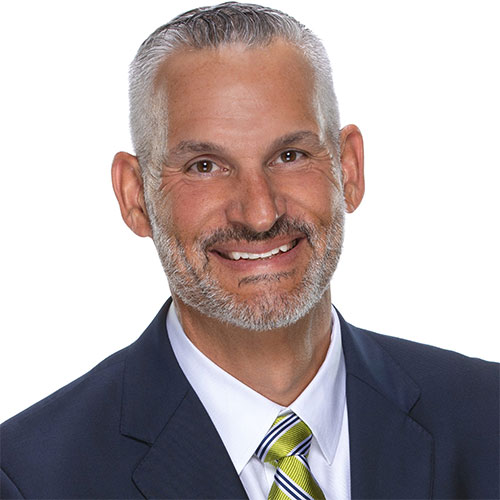The following transcript is lightly edited for clarity.
Tell us a little bit about LocumTenens.com.
LocumTenens.com is one of the largest providers of temporary staffing of physicians and advanced practitioners, so physicians, NPs, PAs and CRNAs, and our business is helping healthcare organizations mitigate the physician shortage by placing clinicians in temporary assignments across the country.
What’s the backstory of the company? How did it get started?
The company was started in 1995, so we’ve been around for a while. Essentially it grew up out of permanent search and the concept that it takes quite a while to find a physician on a permanent basis, so we started a business to help fill the gap from the time a healthcare organization identifies they need to bring on a clinician to the time they’re able to actually get them there and get them onboarded. From there the business has grown to serve in a lot of different ways, primarily around fractional staffing.
How does the pandemic impact your work, with the chaotic ebb and flow of demand?
The best analogy I can give is it's similar to the wildfires we’ve had out west. The clinicians who work with us have kind of parachuted into hot spots all over the country to serve as frontline workers in the pandemic. You saw a lot of the institutional barriers to healthcare come down during that time. States eased licensing requirements. They let licenses from one state stand in another. Some of the barriers around the length of the privileging process were compressed to try and do everything they could to get these clinicians in front of patients to help serve these needs faster. It was a crazy time for our business, but we are really proud of the way we were able to respond. We put almost 800 clinicians to work with 57 different clients in 42 states, so it really is a testament to our frontline healthcare workers and their willingness to parachute into these places and put their lives in peril in order to serve.
Do you see that as a trend moving forward, there’s going to be a lot of hiring during these high-demand periods of time and then releasing them for the less high-demand times?
Right now we're seeing a phenomenon that's really impacting demand and driving it to new levels. I've been in the staffing business for 25 years and healthcare for 18, and I've never seen it where demand has been this high. You kind of have a few things going on. You have a rolling bubble of pent-up demand, so you had healthcare organizations that shut down their elective surgeries, that took things that might have been routine, like a routine colonoscopy or a heart catherization and put that off, and now those patients are presenting in greater volumes to get caught up, and also in a lot of cases with a much higher level of complexity, which creates the next phenomenon, which is burnout for clinicians who are working in these settings. They're trying to get caught up, they're short staffed, they're not really able to take a break, so a lot of clients use our services to be able to give their permanent staff a break. So we anticipate continuing to see high volume here in the near term, and as most people are aware, there's also a very acute physician shortage in our country aside from everything we're experiencing with COVID. We're already in a very demand-heavy model there, so there's a lot of factors that are driving that: the aging population, and 40% of practicing physicians will reach retirement age in the next ten years. We simply just can't get enough clinicians through training to meet that gap, in addition to very gross maldistribution across the country. You have the heavier concentration of physicians in urban and suburban areas, not so much in your rural areas, so we believe for our business, we'll continue to see very high demand for the foreseeable future.
Is technology going to alleviate some of that in terms of telehealth? Maybe allowing more physician assistants to do some of the activities? Or even software to do some of the activities?
Great question. Our telehealth business provides traditional boots-on-the-ground staffing, but we also have a part of our business that sees patients via telehealth. That area has boomed through the pandemic and has continued to be a part of most of our clients' plans moving forward. It became a necessity throughout the pandemic, and I think maybe that's been one of the silver linings of the pandemic, if you can look at it that way. It did kind of force a lot of healthcare organizations to rethink how they utilized telemedicine and force adoption of those technologies, so I think that will be something that will benefit all of us as consumers of healthcare moving forward.
Do you have any advice for practices out there when they're dealing with staffing shortages, especially when they get into high-demand periods, which I'm sure we're approaching with flu season?
The number one thing is be proactive, because the sooner you can isolate needs you have, the sooner you can mobilize a response. One of the key differences I think we're experiencing now versus what we saw a year ago as we're seeing surges in certain parts of the country is our clients are much better organized, they are much more proactive and plan around how they're leveraging contingent resources, whether that's physicians or advanced practitioners. You even hear a lot about nursing shortages across the country as well. So I think the number one thing I would impart is be very proactive; think ahead and identify areas of need so they can be approached very rapidly because everything takes longer than anticipated, much like most things in life, and kind of this post-COVID moment, which doesn't feel that “post.” Things just take a long time. I think the earlier practices can identify needs, the more effective they'll be in leveraging those resources as they move forward.
Are you doing anything to attract the candidate who doesn't want to be tied down, or is tired of the grind of their own practice or being part of a more enterprise level institution? What are you doing to attract physicians into the LocumTenens.com ecosystem so they are at the ready when the time comes for them to be needed?
Great question. Your question is a good set up for the answer in that we are seeing more and more physicians adopt a locum tenens, or kind of a temporary model, as a practice style, meaning you have residents who are coming out of training who want to utilize these temporary assignments as a trial practice opportunity, or an opportunity to pay off debt. It essentially allows them to kind of take a test drive. And then you have many who just decide they don't want to deal with the overhead, the administrative burden, the politics that might be involved in working in a permanent situation. When they grow tired of an environment or a setting, they can simply move onto another one. For us, our outreach is just really trying to reach as many clinicians as possible to kind of share with them those benefits and educate them about opportunities that are available. We're not only a staffing agency. We're also the largest free job board in this space, so we have the opportunity to reach a vast audience of clinicians and put resources in front of them so they can learn about temporary assignments and opportunities and how that can impact their careers.
Are there certain specialties where this is a better fit than others, or is it anything goes?
We work across most specialties, and those assignments can kind of run the gamut from a trauma surgeon who might go work for a weekend in an urban setting, to a psychiatrist who might go work in a community mental health center for weeks, months or even years. It really lends itself in different ways across most medical specialties.
So when you got into this, did you foresee this type of evolution of medical practicing?
Let me take a quick step back. LocumTenens.com is the name of our company. Locum tenens is from latin; it means to hold the place of another, and it's what our industry is referred to. The locum tenens industry is about a three and a half billion-dollar piece of a 20 million dollar U.S. healthcare staffing industry. It's one of those industries where most of those people don't realize there are temporary physicians working in probably 90% of hospitals across the United States. It's not something most people really think about.
And hospitals aren't putting that on their brochure?
Essentially those clinicians are white-labeled right? So if you show up in an ER, you might be seen by a clinician there, but part of the hospital's opportunity is to make that kind of a seamless experience, right? So they want to go out and find the best clinicians. And it will say “Dr. Smith” on their lab coat, whether they are a contractor through our company, or a company like ours, or a permanent employee of that facility.
So that's just kind of baked into the way that it works?
Correct.
So now you're seeing the trend that it's going to be more of that, not less of that moving forward?
We believe so, yes. I touched on burnout, I touched on the physician shortage. So the Association of American Medical Colleges projects that by 2034, there could be a deficit of as many of as 124,000 physicians based on demographics and the aging population. Just for context, there are only about 800,000 physicians in patient care in the U.S. today. So a deficit of 124,000 is a pretty significant number. We really help address that gap between supply and demand.
You mentioned there's not the onboarding of a bunch of young people who are choosing medicine at the pace that has historically been the pace?
I haven't seen the latest numbers on medical school enrollment, but there are not enough residency slots in order to get enough clinicians through training. Now that's mitigated by the use of advanced practitioners, so NPs and PAs, and I think that maybe one of the other hidden benefits of the pandemic is it kind of forced a good, hard look at how those professionals are being utilized, the amount of autonomy they have to practice independently, where they have to be supervised. And I think looking forward, we'll continue to see APs leveraged much more effectively to help offset that deficit of physicians.
Don't you think that has to be the case between those people with technology, telehealth and software? I think software is the solution for some of this, you know customer care, holding people accountable and compliant. There's got to be some technology solutions as well as human solutions.
Absolutely, yes.
What do you need more of? How can we help you?
If there are any clinicians listening to the program, we have a lot of opportunities available. You know we're based here just north of Atlanta in Alpharetta, Georgia, and we are always looking for great people to join our organization. We've been recognized quite often over the last few years as one of the best places to work here in the Atlanta area. I would say check us out. Our parent company is Jackson Healthcare, which is a company that has a portfolio of staffing and healthcare technology offerings. What we provide is somewhat unique in that if we do our job, and we do it well, it means somebody gets to see a doctor who otherwise wouldn't, so you can feel really good about the impact and the benefit you're having to society and the greater good by delivering a really phenomenal service.
The stakes are high and they're real because like you said, the demographics are real, and the shortage is real, and we have to be doing things proactively to be getting ahead of this, or else we're going to be one of those places where it takes weeks and months to see a doctor.
Absolutely.
One more time, the website?
Thank you so much, Chris, for sharing your story today.
Thanks for having me.

About the author
Chris Franklin
President
Chris Franklin serves as president of LocumTenens.com. With nearly two decades in healthcare and technology staffing experience, Franklin leads the LocumTenens.com team as they partner with clients to deliver innovative solutions that increase access to care and provide value to patients. He lives in Milton, Ga. with his wife and three daughters.





